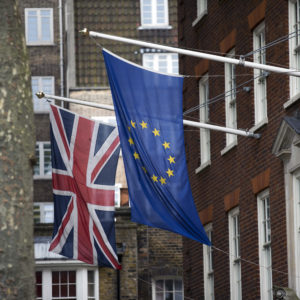This is the season would-be vacationers are asked what summer reading they’ll pack along with the shades and sunscreen.
Not easy this year.
British leader Boris Johnson’s fun reading runs to the wrecks, both human and marine, found in Carl Hiaasen’s Florida capers: fine, but many will find that hilarity overshadowed by current crises — war, inflation, recession, poverty, immigration, climate change and so on.
Perhaps it’s a moment for something more reflective?
Ten years ago, Dutch author Geert Mak published to much acclaim “In Europe,” travels through the 20th century. He later penned “In America,” travels with John Steinbeck, and has produced a sequel to the first, “The Dream of Europe,” travels in the 21st century, bringing his odysseys almost up to the Ukraine war.
A regular poll asks European voters whether they expect their kids’ lives to be better than their own. In 1999, the answer was an overwhelming “yes.” Twenty years later, it is an overwhelming “no.” “That is the state of present-day Europe,” Mak summarizes, quoting Henry Kissinger’s acid verdict that the 27-member European Union “was drifting off into a geopolitical vacuum between a past it sought to overcome and a future it had not yet defined.”
Nevertheless, the most recent polling showed voter support for the bloc is at its highest in 15 years, the best result since 2007. Sixty-five percent consider it “a good thing.”
It seems that with the return of war to the continent, Europeans feel reassured to be part of the “club.” Little surprise Ukraine wants to join.
Earlier this month, the EU unveiled the results of its own two-year study on the “Future of Europe,” which it proclaimed as “a unique experiment in international deliberative democracy.”
Its aim “is to allow citizens a greater say in their expectations.” That mouthful’s 49 reform proposals stress the need to make faster decisions in any crisis, such as the Ukraine war and its consequent energy shortage.
The continent has plunged into its worst emergency since World War II, yet it still uses stop-motion diplomatic methods that ultimately satisfy no one — particularly Europe’s U.S. allies.
Quicker deals won’t necessarily make better ones, of course, but the report, overshadowed by Russian hostilities and the re-awakened COVID virus, wants the EU to be less arthritic in big decision-making.
Most notably, the EU needs — and fast — energy diversification policies. Greater coherence in migration rules should be on any reform agenda; plus the “leadership gap in Germany” identified by Carnegie Europe, which it claims has opened stealthily during the last two decades. The report further intends a tightening in Europe of the U.S. 2012 Magnitsky laws imposing sanctions internationally against corruption, “dirty” money and shell companies.
Little escapes Mak’s smooth retrospection as a multi-lingual scholar/historian. He writes that Western freedom and democracy used to be thought to steadily conquer the rest of the world. Now events seem to point in the opposite direction. Europe is casting about for answers, divided and weakened. Quoting the New York Times, he also notes “the old trans-Atlantic world of the late twentieth century” has evaporated.
The author refers approvingly to a British diplomat who had a special rubber stamp reading “OBE” — Overtaken by Events — which he used to thump enthusiastically on anything he believed was.
How would he react to today’s Europe?

